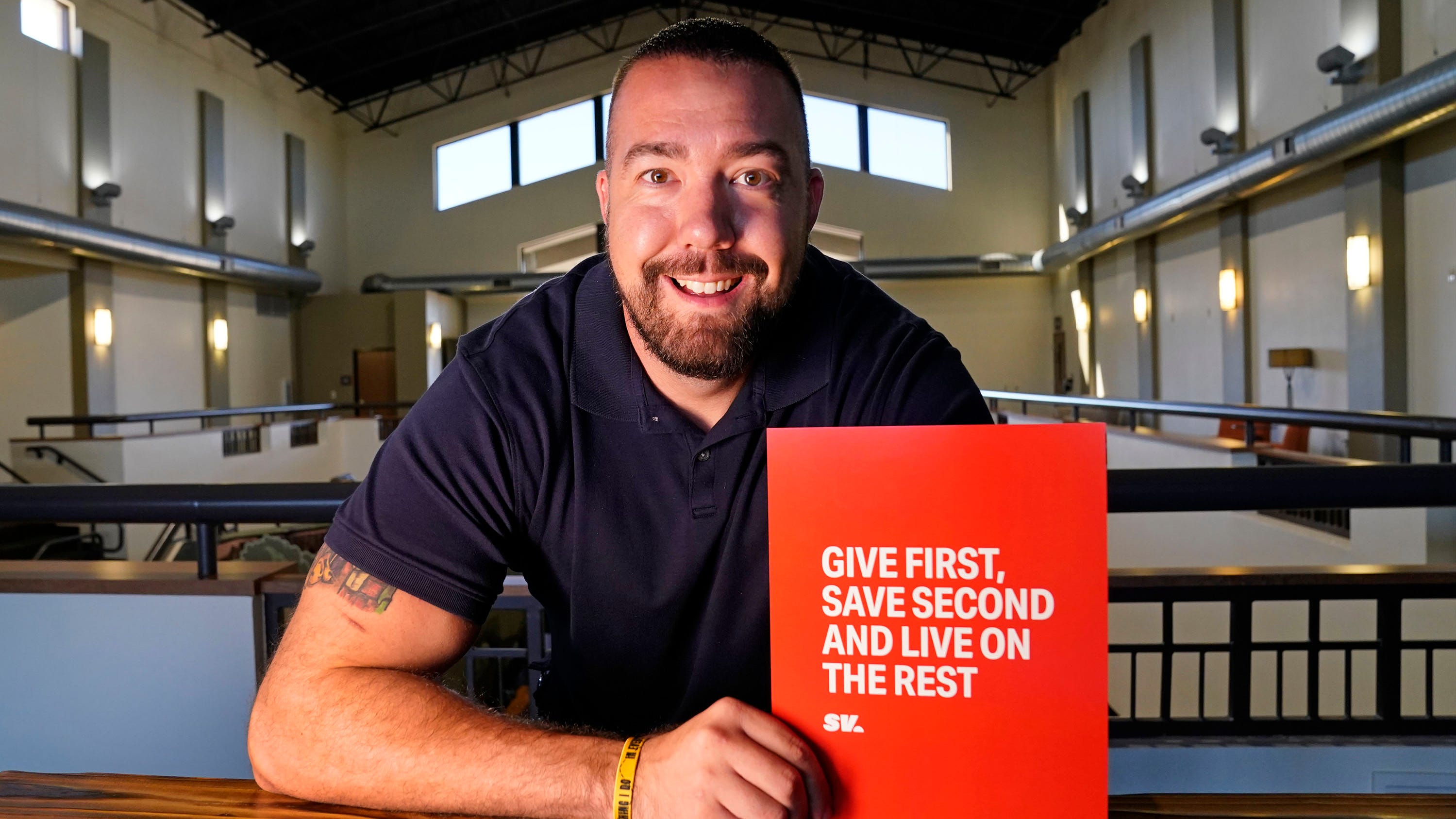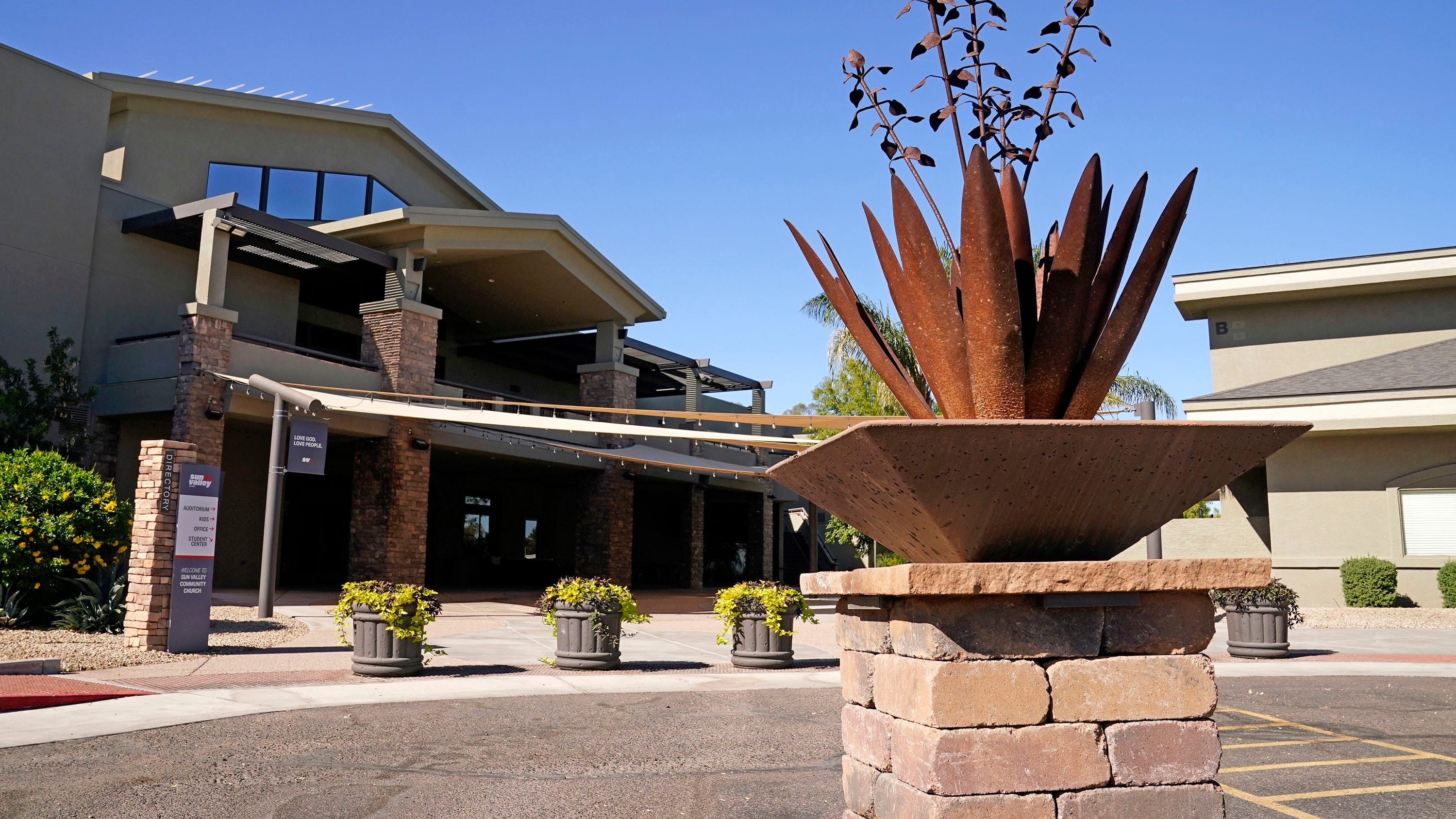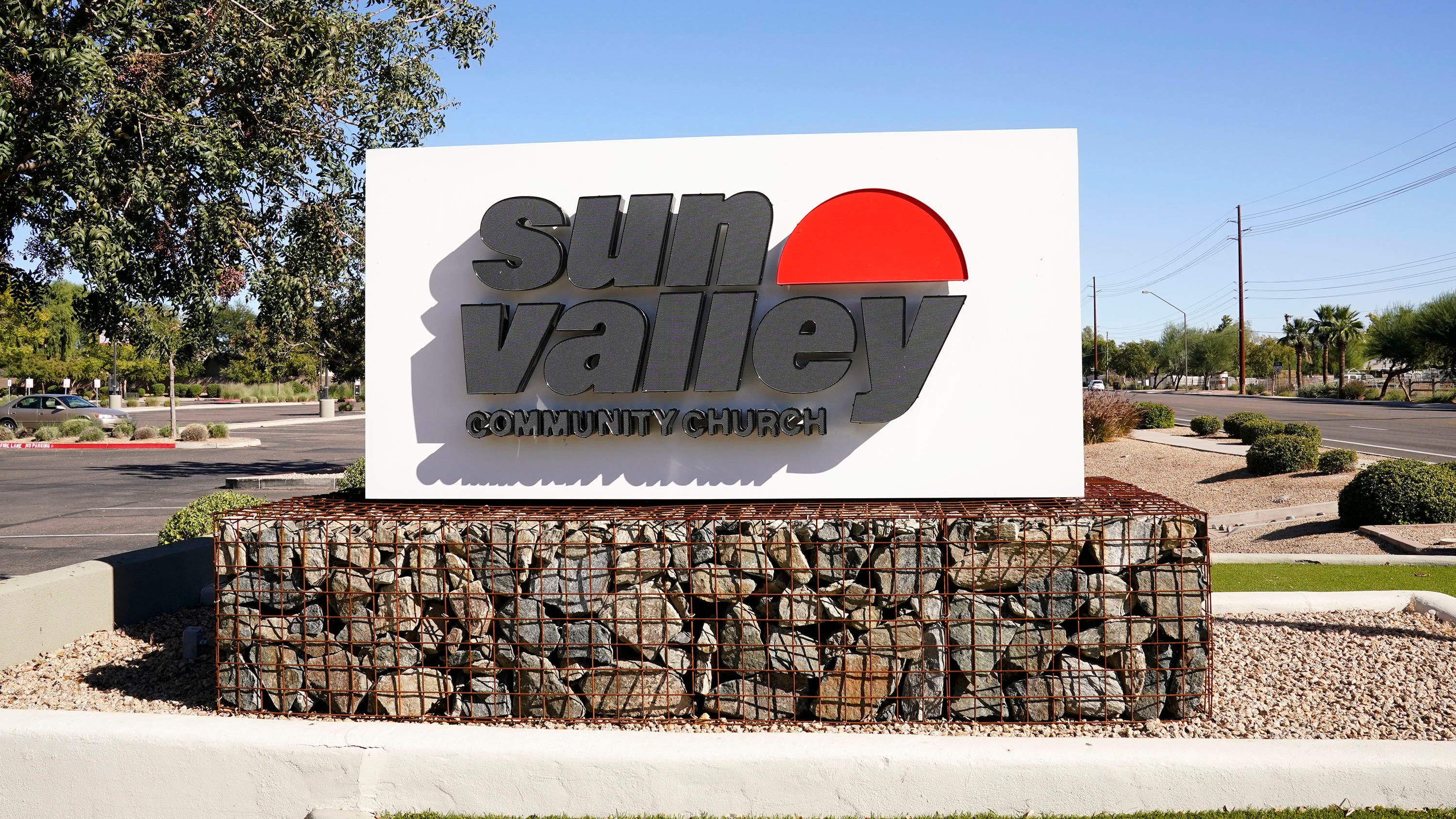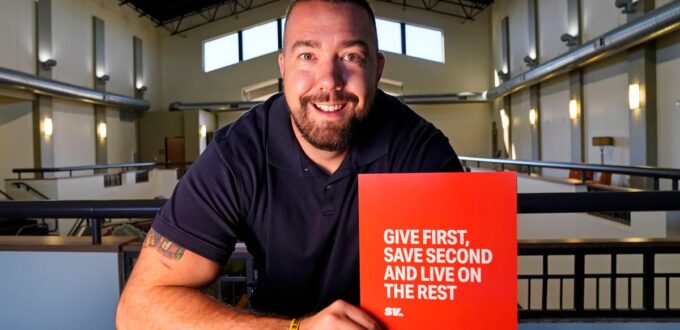Parishioners at Sun Valley Community Church hear a typical message each week when it comes time to make an offering at its six suburban branches east of Phoenix.
They are told from the pulpit to give first, save second and live off the rest of their incomes.
Sun Valley’s roughly 10,000 members now have a new way to financially help the church’s ministries.
Sun Valley is among a small, growing number of churches across America that are accepting online donations in cryptocurrencies, digital money created and exchanged over a decentralized computer network where transactions are secured and verified through coding.
These churches are following the lead of nonprofit organizations that also began accepting cryptocurrency donations in the past year as digital coins became more mainstream during the COVID-19 pandemic.
►Online church:Ministries use VR, apps to deliver digital services and virtual baptisms
►Young parents buy crypto: Millennial parents join the crypto craze. Should you? Here’s what experts say.
Church leaders say they are making it easier for young investors or professionals to donate.
“We are just trying to keep up with the way people prefer to give, and with younger people, they don’t really carry cash,” said Mika Casey, Sun Valley’s lead director of digital strategies. “We want to be accommodating to ways that people are transacting.”
While cryptocurrency is becoming more popular, it still has its critics.
JPMorgan Chase CEO Jamie Dimon, who runs the largest U.S. bank, said last month at a conference that cryptocurrencies will be regulated by governments, and he called bitcoin, one of the most popular cryptocurrencies, “worthless.”
Securities and Exchange Commission Chair Gary Gensler has described the crypto market as the “Wild West,” that’s ripe with fraud and abuse.

Digital offerings
Yet, cryptocurrencies have become a valid method of payment and New York’s mayor-elect wants his first three paychecks in bitcoin. The Jacksonville Jaguars’ rookie quarterback Trevor Lawrence took his signing bonus in cryptocurrency.
Casey said Sun Valley will accept crypto donations online just like it has done for several years with other forms of money such as electronic checks or debit or credit card payments.
He said the church, which has installed giant screens in its sanctuaries and now livestreams services using professional-grade cameras, has also moved away from passing offering plates because of health concerns raised by the pandemic.
Many churches like Sun Valley encourage their members to tithe, or give 10%, of their incomes. However, few do, according to the online site Church Development, which says only roughly 5% of all churchgoers donate that amount of their earnings.
According to Nonprofit Source, an online site that gathers statistics on giving, nearly half of all church donation transactions are made with a credit or debit card and 60% of churchgoers are willing to give digitally.

Cryptocurrency helps building fund
The VIVE Church in Palo Alto, California, began taking noncash assets like stocks a few years ago and now takes cryptocurrency.
The Rev. Michelle Stewart, a former lawyer, said her church members in the Bay Area were investing in crypto and had asked how they could give from the financial gains they had made.
Stewart said that two of the pastors helped create software that would allow the roughly 1,000-member church to accept noncash gifts like crypto, and that many of the givers at VIVE donate that way.
She said church members also are encouraged to use a QR code with their phones to make online gifts.
She saw the power of noncash gifts in August and September when the church wanted to put a down payment on a new building and raised $6.3 million – with half coming from crypto and stocks – in 45 days.
While VIVE Church is in Silicon Valley, Stewart said she and others still have to provide education to some of its members about cryptocurrencies, and the church only will accept mainline coins like bitcoin and Ethereum.
Sun Valley in Arizona started accepting cryptocurrencies in October after switching to a new online financial transaction company called OnlineGiving.org, which processes electronic donations for churches.
Casey said Sun Valley initially was looking for a way to save money on electronic banking fees, but then the owner of OnlineGiving.org encouraged Sun Valley to include cryptocurrencies in its offering options.
Convincing skeptics
Stephen Ballard, co-founder of OnlineGiving.org, said between 30 to 40 of the churches that he provides services to now take cryptocurrency donations. All have congregations of at least 2,000 people.
His North Myrtle Beach, South Carolina, company will accept bitcoins, Litecoin, Dash and Dogecoin for churches, but he’s looking to add more coin offerings in the future.
A few other churches across the country have made headlines recently by saying they, too, will accept cryptocurrencies, but these churches along with VIVE and Sun Valley appear to be in the minority as there were more than 340,000 churches in the U.S. as of 2010 according to the Association of Religion Data Archives.
Ballard said he’s met his share of skeptics about churches accepting crypto gifts, but he tells those leaders that they can immediately convert crypto to cash. Or, they can hold it as an investment.
He said he tells churches that accepting crypto is no different than accepting a stock or a home or an automobile. Ballard said most of his churches that accept those kinds of gifts typically quickly sell the asset and put the cash into their coffers.

Ballard said churches that want to accept crypto must establish a cryptocurrency wallet, which typically takes up to two weeks. And while all of his customers who take crypto are large churches, he said he has software that would allow smaller churches to accept digital coins.
Ballard, who said he was a former licensed investment broker, added churches that accept cryptocurrency are opening themselves up to younger individuals who may have made a fortune in cyber coins and are looking to give away some of their wealth.
“I’ve talked to guys in their 30s who are crypto millionaires. They bought the stuff and held it or bought and sold through the years,” Ballard said. “Less than eight years ago, bitcoin was under $1,000. Now, it’s over $60,000.”
Bloomberg on Tuesday reported that bitcoin hit an all-time high, when it jumped to $68,513, while the total value of digital tokens tracked by CoinGecko has reached $3.1 trillion.
Have a tip on business or investigative stories? Reach the reporter at craig.harris@usatoday.com or 602-509-3613 or on Twitter @CraigHarrisUSAT

No Comments Yet